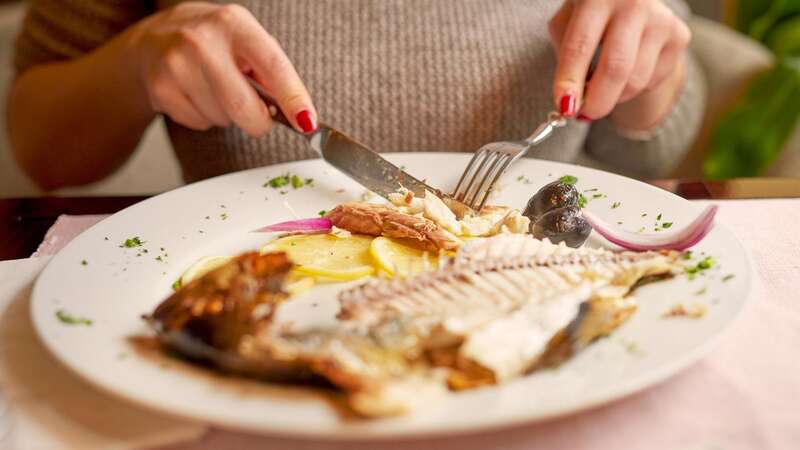

Today is Good Friday, and for Christians who commemorate it, it marks the day that Jesus Christ died on the cross for humanity to save them from their sins - so why is it tradition to eat fish on this day?
Believe it or not, this weekend is way more than just a fun excuse to celebrate more days off with your pals, and Christians all over the world are marking the Easter Triduum - the three-day event memorialising the death, burial and resurrection of Jesus Christ.
The reason that fish is traditionally eaten on Good Friday is because fish is traditionally eaten on Fridays by Catholics, following the doctrine set out by the Vatican. The medieval church said meat, specifically that of warm-blooded animals, should not be eaten on Fridays - so instead, they opted for fish, reports Metro.
Later, in the 1960s, the Pope said that fish wasn't compulsory on a Friday to account for everybody's socio-economic status, as it became very expensive.
For many Christian denominations, eating fish on Good Friday marks the symbolism of the day in the Bible when Jesus was killed by the Romans. In Christian symbolism, fish holds deep significance, often representing spiritual nourishment and abundance.
 Widow brings pillow with late husband's face on it to pub every New Year's Eve
Widow brings pillow with late husband's face on it to pub every New Year's Eve
So why are fish such a big deal in the Bible? Jesus referred to his disciples as "fishers of men", and some of them were literally fishermen, so this is referenced often in the holy book.
Fish are also used as a symbol to easily share that you're a Christian, with many placing a simple fish symbol on their car, or outside their home to show that they are a practicing Christian.
Overall, Good Friday is a solemn day when Christians reflect and mourn. Many countries and church groups reenact Jesus' walk with the cross, while others opt to carry the cross on their backs, like Jesus did. A more accessible tradition is enjoying hot cross buns on Good Friday.
This might seem like a non-religious tradition for the season, but it has everything to do with Lent. The bun marks the end of the 40-day period of Lent, with the treat itself being highly symbolic for Christians. The most obvious piece of symbolism of the cross itself, which represents the cross Jesus died on. What might surprise you is the spices are symbolic as well.
They represent the spices used to embalm Jesus after his death and before his burial. The spices chosen can vary on the exact recipe used, but the orange peel is often added to represent the bitterness of his time on the cross.